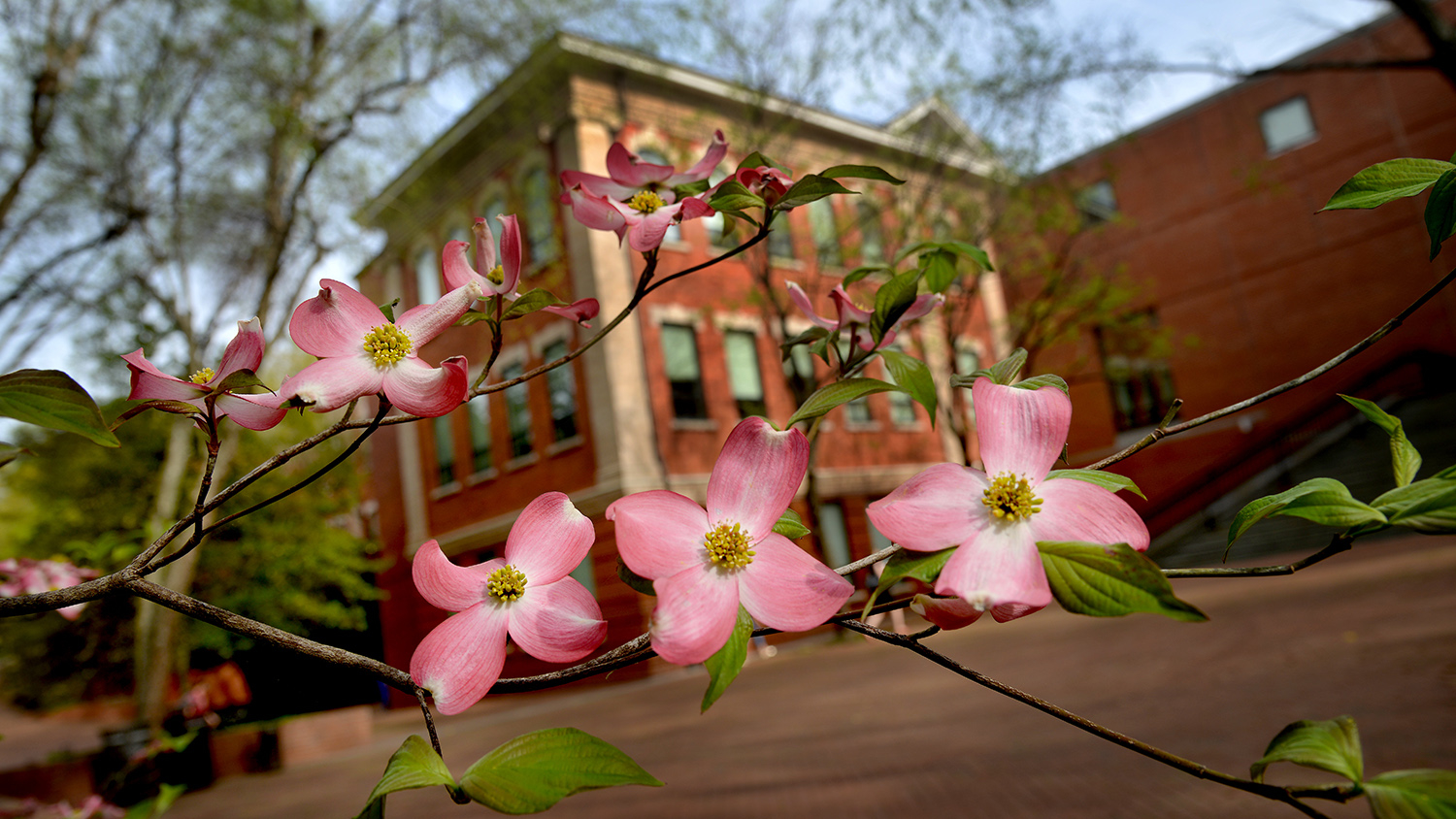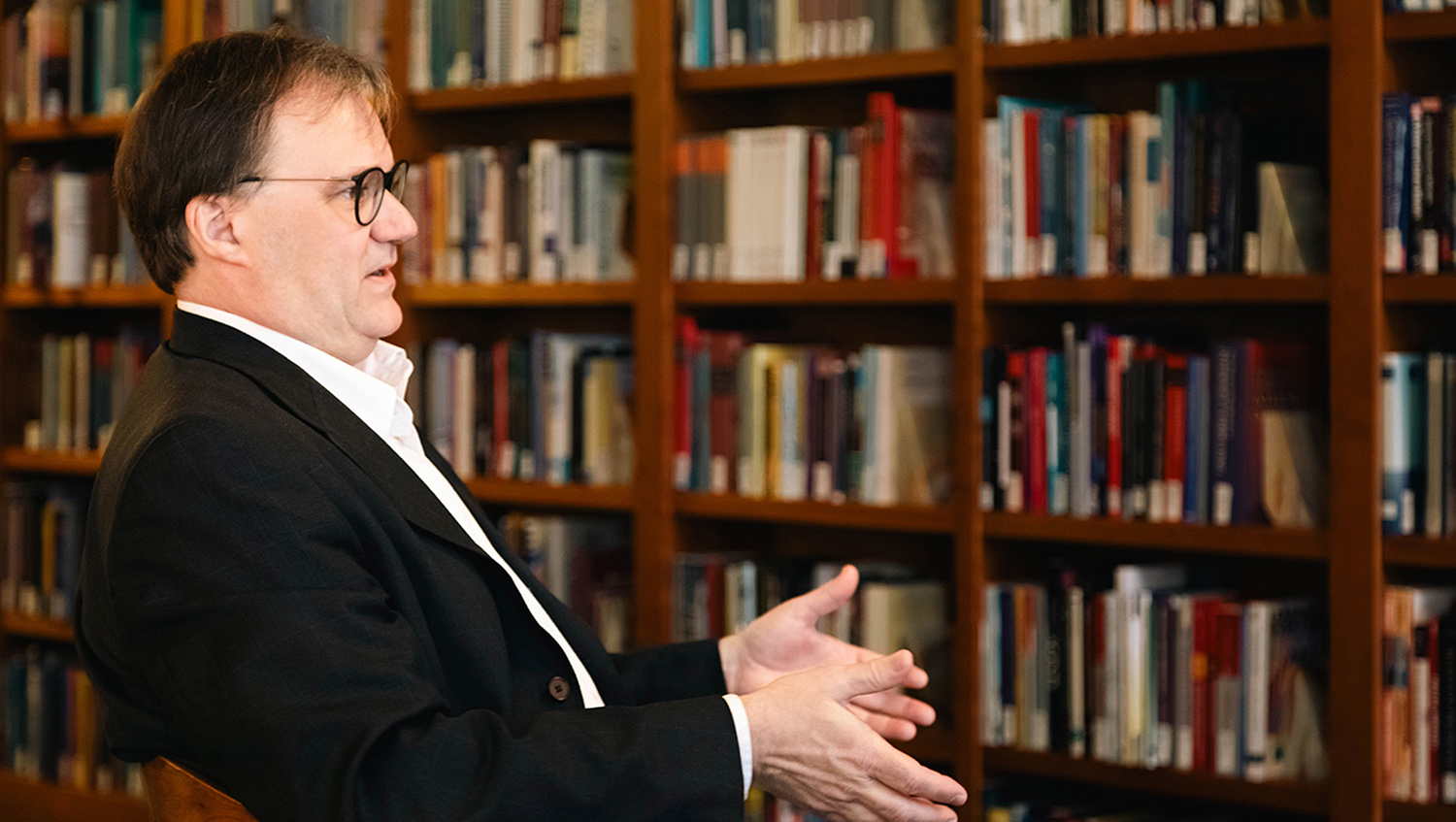Politics, Religion, and Electric Guitars
Students watching Dr. Jason Bivins stand behind a podium to lecture on religion probably don’t know that he is just as comfortable standing on a stage with a screaming electric guitar in his hands.
They’re missing out.
Washington, D.C., in the 1980s left its imprint on Bivins. The nation’s political headquarters experienced the emergence of conservative religious groups into mainstream political consciousness. It was also the center of a do-it-yourself punk rock movement that told kids to grab a guitar and make some noise. Bivins was clearly paying attention. An expert on the nexus of religion and politics, Bivins has a new book on conservative evangelical Christian groups and American politics coming out in August, and the sound of his electric guitar will be on a new album from his jazz ensemble later this year.

Bivins, an associate professor of religious studies and associate department head of North Carolina State University’s Department of Philosophy and Religion, has long been torn between religion and music. He began his career as a guitarist in a punk band in Washington, D.C., when he was 15. At about the same time, he started working his way through the books on religious theory lining his father’s bookshelves.
His experiences as an undergraduate served to fuel both of his interests. While earning his degree in religious studies at Oberlin College he found himself taking musical study more seriously, forming a rock n’ roll band and spending all his free time jamming with jazz musicians.
But Bivins’ dual careers as scholar and jazz musician did not really start to take form until he began his graduate studies at Indiana University. It was there that he began playing improvisational jazz on a fairly regular basis – and where he was taken under the wing of the well-known religion scholar Robert Orsi. It was Orsi who influenced Bivins’ shift in focus from the study of religious theory to the history of religion and the interaction of religion and politics in the United States.
“Being a D.C. kid, I was always interested in politics,” Bivins says. “It was only a matter of time before I incorporated that interest into my work on religion.” Bivins’ 2003 book, The Fracture of Good Order, addressed the movement of some conservative Christian groups against liberal politics. His upcoming book, Religion of Fear, revisits conservative Christianity – this time focusing on how elements of that movement have utilized fear to advance their political goals.

But while Bivins has pursued a career in religious studies – joining NC State’s faculty in fall of 2000 – he has not abandoned his guitar or his work as a musician. Since 1998, Bivins has released three albums with the free improvisational jazz group the Unstable Ensemble, as well as one album with the Impermanence Trio and a duet album recorded with drummer Ian Davis. Despite their names, Bivins stresses that the Unstable Ensemble and Impermanence Trio are still very much together. In fact, Bivins says a fourth album from the Unstable Ensemble – tentatively titled Snarl – is due out later this year.
To cap off such a busy year, Bivins plans to begin work this fall on a new book that will reconcile his two passions: religion and jazz in America. Among other things, the book will explore how jazz musicians have drawn on specific religious traditions to inform their music; musicians who view performance as a ritual; and artists who view music as a gift from a higher power. “I’ve been thinking about these connections for years,” Bivins says, “but this is the first specific convergence.”
Bivins points out that his previous books, “have been about some pretty dark themes.” He breaks into a smile and says, “This is my chance to tell a happy story about American culture.”
Author: Matt Shipman | matt_shipman@ncsu.edu
- Categories:


